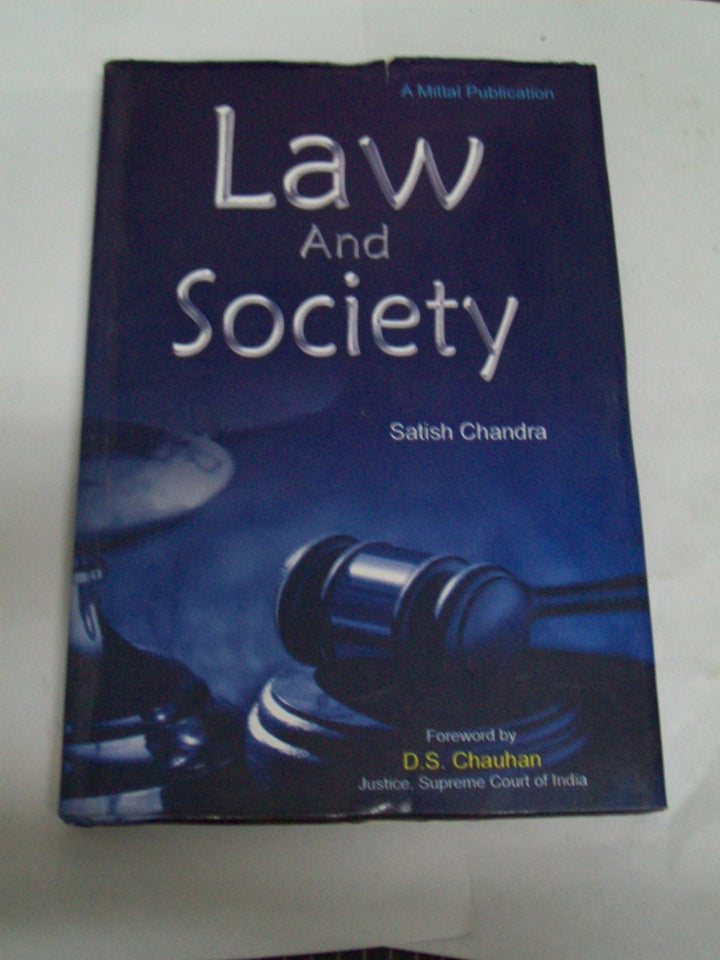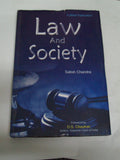Law and Society - Random Thoughts
Regular price
Rs. 295.00
There is , a widespread feeling that the explosion of scientific knowledge and of its technological application which has taken place in recent decades has not been accompanied by an appropriately urgent, profound and continuous consideration of the implications thereof for human rights. It has been asserted that such a consideration has become the more urgent since new scientific discoveries now pass more rapidly than ever into practical application, and their implications for human rights are often unforeseen. Science being itself a part of culture, the essential problem facing mankind in relation to scientific and technological progress, on the one hand, and the intellectual, spiritual, cultural and moral advancement of humanity. on the other, is to decide on the appropriate two way relationship which should exist between them. However, this relationship is not the same for all times or all places. An investigation of this relationship includes an examination of the impact, both beneficial and harmful, of recent scientific and technological developments upon the rights laid down in the Universal Declaration of Human Rights. Such impact affects many such rights. either individually or in combination. The application of policy measures appropriate to the circumstances is an aspect of achieving the correct relationship between scientific and technological progress and the intellectual, spiritual, cultural and moral advancement of humanity. Legal educational policies should aim at a better understanding of science on the part of the general public and a better understanding of humanity and the needs of the society. No doubt that many and varied measures have been taken on the national level for the protection of human rights. Nevertheless there is a growing conviction that there is need for continuing assessment on the national level in order to assess possible side-effects and long range effects of now innovations and to establish whether their advantages outweigh the discernible disadvantages, and for control over innovations with harmful potentialities. The above aspects along with others have been discussed in a suggestive manner in the present book. One may hope that book will be useful to the readers.
Satish Chandra (b.1953) has a brilliant academic career. He acquired B.Sc.; LL.M. (Gold Medalist); and LL.D. Degrees to his credit. He was awarded the "Chancellor's Medallist in Law". He has written about a dozen books and 35 research papers/articles on various aspects of law. He is on the Editorial Board of Indian Socio-Legal Journal. He is a life member of various institutions. He has completed various research projects financed by the UGC and ICSSR. A number of LL.D./Ph.D/LL.M degrees were awarded under his supervision. After completing his education, he served as Law teacher in Bareilly College; Dungar (PG) College, Bikaner; MD University, Rohtak; HP University, Shimla. He was a Visiting Professor in LBS National Academy of Administration, Mussorrie, Internal Security Academy (CRPF), Mt. Abu; and various Institutes in Russia and Poland. The Hague Academy of International Law, The Hague, has awarded a fellowship to Dr. Chandra. He was a Visiting Professor in the Institute of State and Law, Moscow. He was the Consultant (Honrary) in the Constitution Review Commission of Zambia. He was appointed to the Sultanate of Oman as first legal Advisor too. Earlier. He has served as Director, Law Commission of India. He also made a contribution as Judicial Member, Income Tax Appellate Tribunal for more then a decade. Presently, Dr. Chandra is a Judge, Allahabad High Court, Lucknow Bench.
Guaranteed Safe Checkout





